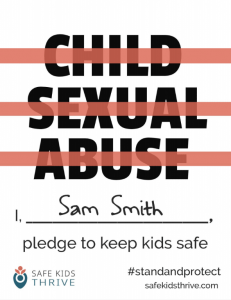Read the Report
Home / Read the Report
Home / Applying the Framework: A Five-Year Plan / Community Based Outreach
Community Based Outreach
- Both prior to, and after this Report is released to the Legislature, the Task Force will conduct a series of regional outreach meetings/community forums with local YSO communities throughout the state. Efforts are already underway to contact appropriate community leadership, find an appropriate venue, and facilitate an initial “Pilot” meeting (currently being planned for June 2017 in the Northeast Region).
- Each community forum will invite representation from a variety of programs that serve children and youth in the region’s communities. Community leaders will partner with the Task Force representatives to send targeted invitations to a mixed group of attendees (e.g., large/medium/small YSOs, private businesses, small non-profit programs, independent programs, etc.) with different levels of knowledge, budgets and experiences.
- The purpose of the Pilot community forums will be for Task Force representatives to make a brief presentation to the attendees about the Report and its intent and recommendations and, by means of a facilitated listening session, ask them about initial impressions, feasibility, potential facilitators and barriers to implementation, and what they would need from the Task Force in terms of initial and ongoing support and availability to help with decision making and implementation.
- Due to the unprecedented scale of what we are proposing, the Task Force anticipates that the very small YSOs and small businesses may need the greatest amount of support and guidance. Their potential state-wide population, and unique needs and challenges – including the fact that many of them have likely never implemented a safety structure like this before – will undoubtedly require additional attention and focus during the first year of implementation and possibly beyond. Being aware of this, the Task Force will make a concerted effort to identify this specific target population in the community forums and reach out to them to gauge and support their specific needs.
- Each community forum will also provide an opportunity for initial training and education, and will contain a short presentation on child sexual abuse. However, the bulk of the time will be spent in small group discussion and feedback. Sessions are anticipated to run for 2-3 hours. Two pilot community forums should be enough to help inform the content, structure and efficiency of the forums that will follow throughout the state.
- Acknowledgements
- Executive Summary
- Introduction
- How to Read This Report
- Mission & Purpose of Taskforce
- A Brief History of How the Taskforce Was Organized
- The Charge of the Legislative Language
- Key Sections
- Section 1: Developing Policies and Procedures for Child Protection
- Section 2: Screening and Background Checks for Selecting Employees and Volunteers
- Section 3: Code of Conduct and Monitoring
- Section 4: Ensuring Safe Physical Environments and Safe Technology
- Section 5: Recognizing, Responding to, and Reporting Allegations and Suspicions of Child Sexual Abuse
- Section 6: Training About Child Sexual Abuse Prevention
- Additional Considerations
- Applying the Framework: A Five-Year Plan
- Appendices
- Section-Specific Appendices
- Downloadable Resources

Take the Pledge to Keep Kids Safe
Join us and commit to learning how you can protect the children you serve.
Sign Up to Access Your Learning Center
Customized child sexual abuse prevention guidelines to meet the unique needs of any organization that serves children.
- Evidence-informed guidance
- Actionable prevention steps
- Keeps track of your progress
- Tailored learning tracks


